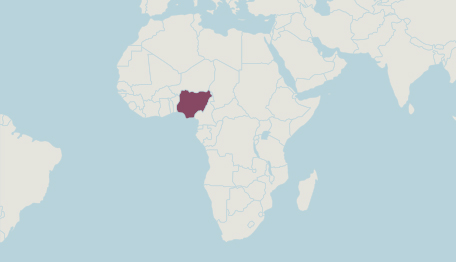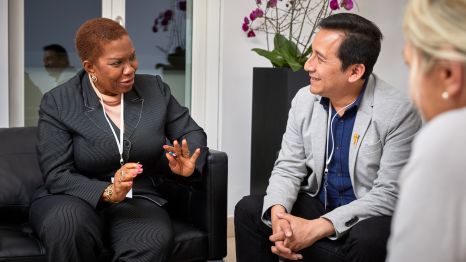STEM education in Nigeria
“We have to make it happen” – this is the essence of optimism in Nigeria. The diverse and multicultural country has a dynamic economy, a creative entrepreneurial spirit, and a growing start-up scene in the digital sector at its disposal. To top it off, Nigeria is young – very young: Two-thirds of the roughly 190 million residents in Africa’s most-populous country are youths. Motivated and ambitious, they want to carve their own path and move the country forward. But around half of them have no income. The country produces very few goods, meaning there is little sustainable value creation and hardly any opportunities for young people.
Education in Nigeria
Realistic employment prospects and strong education are essential for change and development, for promising jobs of the future, and for new knowledge and innovation. But there is still a lot to do here: A large part of the children of school age still do not attend school. Well-equipped schools and good teacher training are in demand.

- Four-tier education system Primary school (6 years), junior secondary school (3 years), senior secondary school (3 years, advanced, academic focus), higher education (4 years)
- Education budget: no information available
- WEF Ranking Maths and Science Education: 118 of 137 (2016-2017)
- Important issues: Strong education and job creation; enable value creation for a young and growing population
Our engagement in STEM
The Siemens Stiftung works with national educational institutions to strengthen STEM education, particularly through concepts for improved teacher training:
International educational program Experimento
Since 2016, the University of Lagos in Nigeria, the Lagos Energy Academy, and Empowering Africans through Education – a local NGO – have formed Siemens Stiftung’s Experimento partner network in Nigeria, which turns teachers into Experimento multipliers. Academic and practical training go hand in hand, creating good opportunities for directly launching a career.

»If people have prospects early on, it stabilizes society and keeps people from fanaticism.«
Professional orientation
The lack of jobs and well-trained specialists inhibits value creation and economic growth in Nigeria. Improving education and vocational training structures is crucial for creating individual prospects and economic growth with sustainable productivity. Professional orientation within a formal scholastic education plays an important role, supporting social and economic participation among young people while encouraging innovation and development. The University of Lagos and the Lagos Energy Academy are taking an important step in the right direction with their teacher training concept; their Experimento sessions have a dual focus on pedagogic and practical methods.
Background material
Country’s information portal of the Deutsche Gesellschaft für internationale Zusammenarbeit (GIZ) GmbH






